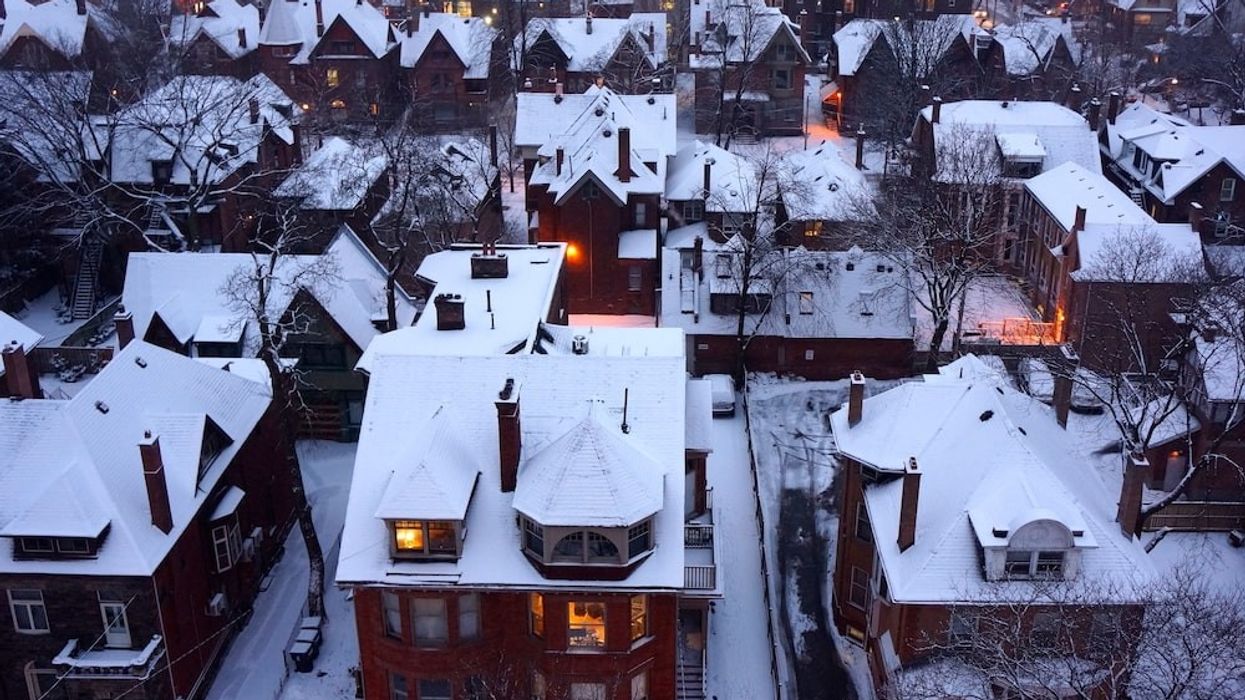As 2022 comes to a close, having brought with it one of the most tumultuous years for the Toronto housing market in recent history, industry leaders (along with everyone else) are already looking into 2023, trying to brace themselves for what the new year may have in store.
The consensus among housing experts appears to be that there will be more of the same in 2023: the correction will continue to moderate, prices will continue to fall, and interest rates will continue to weigh on owners' wallets.
It's no secret that the Greater Toronto Area (GTA) saw a significant downturn in 2022. At its peak, the GTA was staunchly in sellers' market territory, with properties selling hundreds of thousands of dollars over asking in just a matter of days. Now, the GTA is very much a buyers' market, according to Canadian Real Estate Association data provided to STOREYS earlier this month.
With this shift in mind, RBC assistant chief economist Robert Hogue said in a Dec. 19 report that he expects Ontario buyers, particularly those in the GTA where property values are down 12% year-over-year, to "succeed in further reversing some of the earlier outsized price gains."
At the February peak, GTA home prices averaged $1,334,062 but fell to $1,079,395 in November -- a roughly 19% drop. A report from RE/MAX released at the end of November warned of further price drops in the GTA next year, saying they could fall nearly 12% in 2023.
“We’re seeing three main trends that will continue into next year,” said Cameron Forbes, RE/MAX Realtron Realty broker. “Continued interest rate increases and associated price adjustments, rising unemployment due to an economic slowdown, and new opportunities to engage in the market for buyers and sellers because of improved affordability. For buyers, this includes having fewer competitors, reduced prices and an increase in choices in the market. Meanwhile, sellers will have a trade-up advantage, reduced competition of listings, a stronger ability to re-locate to the suburbs, and have all of the advantages that buyers do, too.”
Royal Le Page, on the other hand, is calling for a more moderate decline in prices in the new year, forecasting a smaller 2% drop.
"During the same period, the median price of a single-family detached property is expected to decline 2.5% to $1,329,413, while the median price of a condominium is forecast to increase modestly by 1.0% to $701,243," a Royal Le Page report reads.
Royal Le Page COO Karen Yolevski added that she believes "the bulk of the price correction in the GTA has already occurred and that a return to more normal trends is on the horizon.” Yolevski also noted that activity levels are expected to pick up by the middle of 2023, but only if interest rates stabilize and consumer confidence makes a return. This would be a welcome change for the GTA market, where sales were down 49% annually in November, according to the latest Toronto Regional Real Estate Board data.
"I expect buyers who have been waiting for prices to level off will encounter increased competition when they re-enter the buying cycle, specifically in the more affordable condo segment, although not at the levels seen in 2021 and early 2022,” Yolevski said.
But one of the biggest determinants of next year's market still remains unknown: whether there will be more Bank of Canada (BoC) rate hikes. Since March, the bank has implemented an aggressive rate hike schedule, taking the overnight lending rate from its historic low of 0.25% to its current rate of 4.25%. The hikes hit the Toronto area particularly hard, with owners of expensive houses facing significantly higher payments, and would-be buyers having their purchasing power shrunk in an already unaffordable market.
If you had asked economists in the fall, the general consensus was that the BoC would implement another 50 basis points hike (either all at once in December or spread out between December and January) and would likely pause the hikes after that. The bank indeed went with a 50-point hike in December, but stubbornly high inflation -- the very issue the rate hikes are meant to correct -- has some revising their predictions.
In response to November's inflation numbers, which fell just 0.1% from the previous month, Doug Porter, Chief Economist at BMO Capital Markets said to expect another 0.25% rate hike from the BoC in January. This sentiment was echoed by mortgage broker Ron Butler, who told STOREYS that stubborn inflation “pretty well stamps a 25-basis-point additional increase on the Bank of Canada prime.”
And although GTA residents are already reeling from the effects of the interest rate hikes, Moshe Lander, a Senior Economics Lecturer at Concordia University, tells STOREYS that "interest rate increases take about 12 to 18 months to work their way through the economy." This, he says, should necessitate a pause in the bank's hiking schedule.
"Once we get a little bit of a feel for what happened at the end of 2022, that’s probably going to guide what starts to happen in 2023," Lander said.





















